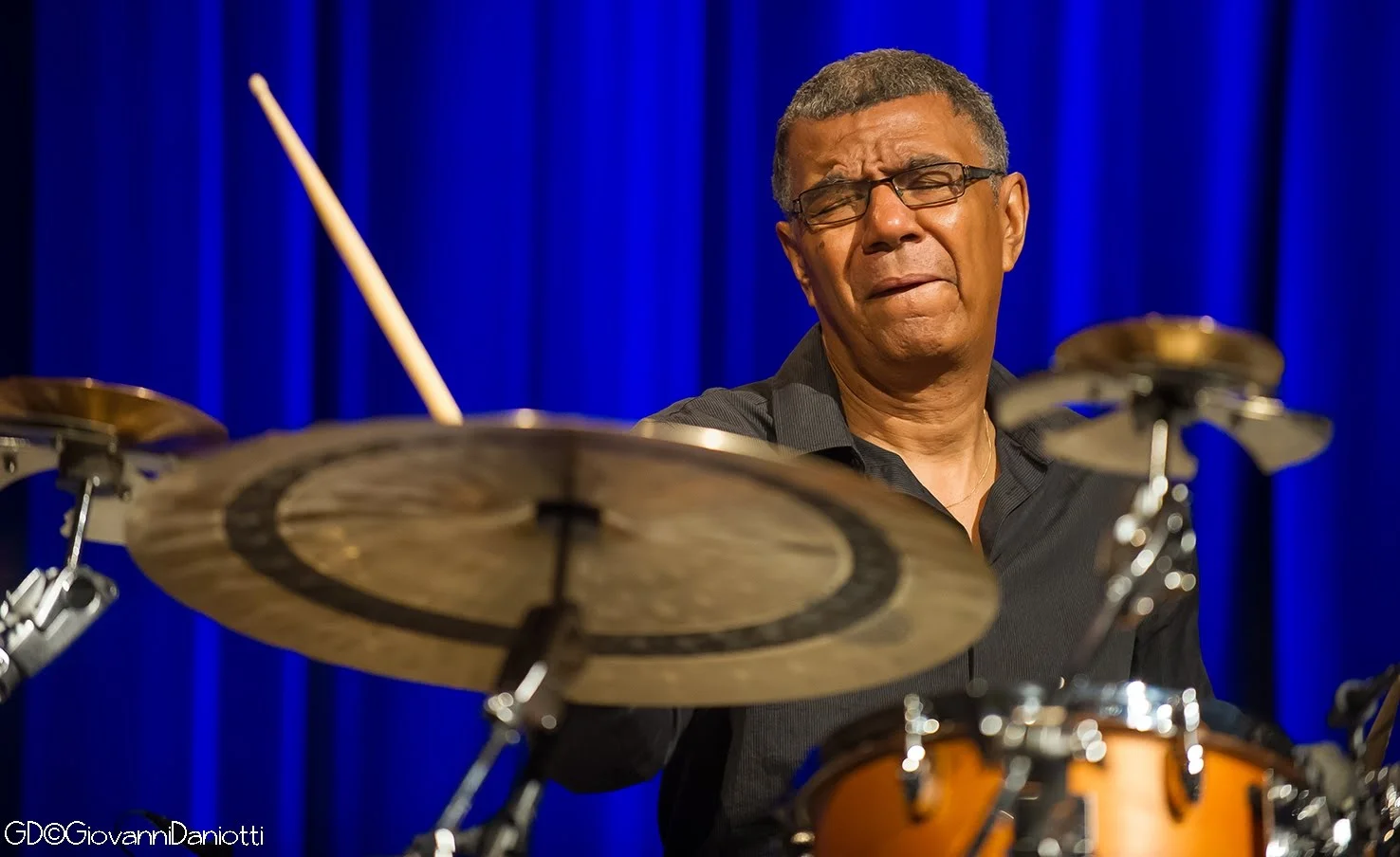
Robert Draws – Jack DeJohnette has left a permanent mark on the history of jazz through his unmatched versatility and creative brilliance. As a drummer, composer, and bandleader, he shaped the sound of modern fusion and progressive jazz for more than six decades. His rhythmic sensibility bridged boundaries between genres, blending free jazz, rock, and funk into a fluid musical language. From his early days in Chicago to global stages, DeJohnette embodied a rare combination of technical mastery and deep emotional intuition. His work with legends such as Miles Davis, Sonny Rollins, and Charles Lloyd reshaped the rhythmic foundation of jazz. The announcement of his passing at the age of 83 shocked the global music community. Fans, fellow musicians, and critics alike remember him as not only a rhythmic innovator but also a soulful artist whose every beat told a story of passion and humanity.
Jack DeJohnette was born in Chicago in 1942 and began his musical path as a pianist before discovering his love for the drums. This early experience gave him an instinctive melodic sense that defined his drumming throughout his career. He once said that piano and drums were connected through rhythm, and this belief guided his artistic exploration. In his teenage years, he immersed himself in doo-wop and rock before fully embracing jazz during the late 1950s. By that time, he already had his own trio and began performing with avant-garde figures like Muhal Richard Abrams and Sun Ra. These experiences shaped his adventurous approach to improvisation. His encounter with John Coltrane’s band, where he temporarily filled in for Elvin Jones, became a turning point that deepened his spiritual connection to jazz. From that moment, DeJohnette’s journey transformed into one defined by fearless experimentation and musical discovery.
One of the most iconic chapters in Jack DeJohnette’s career unfolded when he joined Miles Davis during the late 1960s. At that time, Davis pioneered electric jazz fusion and broke away from traditional structures. DeJohnette delivered dynamic, fluid drumming that formed the heartbeat of this movement, driving groundbreaking albums such as Bitches Brew, Jack Johnson, and On the Corner. He treated the drum kit as a full orchestra, using cymbals and toms to build textures instead of simple rhythms. His energy pushed Davis’s bandmates like Chick Corea, Wayne Shorter, and Dave Holland to explore the outer limits of improvisation. The chemistry on stage reached unmatched intensity, and DeJohnette often described each performance as a thrilling, unpredictable journey. While Davis expanded his electric experiments, DeJohnette kept the groove powerful and alive, transforming the way drummers connected rhythm, harmony, and melody within the language of jazz.
After leaving Miles Davis in 1971, Jack DeJohnette focused on developing his own sound as a bandleader. His debut album The DeJohnette Complex marked the start of a prolific solo career that produced around 50 records. He became a cornerstone of ECM Records, where his projects with Keith Jarrett, Jan Garbarek, and Pat Metheny reflected his love for space, harmony, and spontaneity. The 1980s saw him forming groups like New Directions and Gateway, combining lyrical improvisation with rhythmic sophistication. Beyond his solo work, DeJohnette collaborated with Herbie Hancock, Sonny Rollins, and many others, always adapting his playing to suit each artist’s unique voice. Despite being widely respected for his technical brilliance, he often emphasized emotional storytelling through sound. He viewed drumming not as a background role but as an instrument capable of painting colors, shaping moods, and leading musical conversations with grace and depth.
Jack DeJohnette received two Grammy Awards, including one in 2022 for Skyline, his collaboration with Ron Carter and Gonzalo Rubalcaba. His recognition as a National Endowment for the Arts Jazz Master in 2012 further cemented his status as a global icon. Yet beyond awards, his true legacy lies in the generations of drummers he inspired to see rhythm as both structure and emotion. He believed that music was a spiritual exchange between musicians and listeners, a belief evident in every recording he made. His final years were filled with reflection and collaboration, often exploring new textures through piano and electronic elements. DeJohnette’s passing marks the end of an era, but his sound continues to echo in concert halls and hearts around the world. His drumming will forever symbolize creativity without limits, a reminder that true art lives beyond time and continues to inspire endlessly.
This article is sourced from theguardian and for more details you can read at robertdraws
Writer: Sarah Azhari
Editor: Anisa